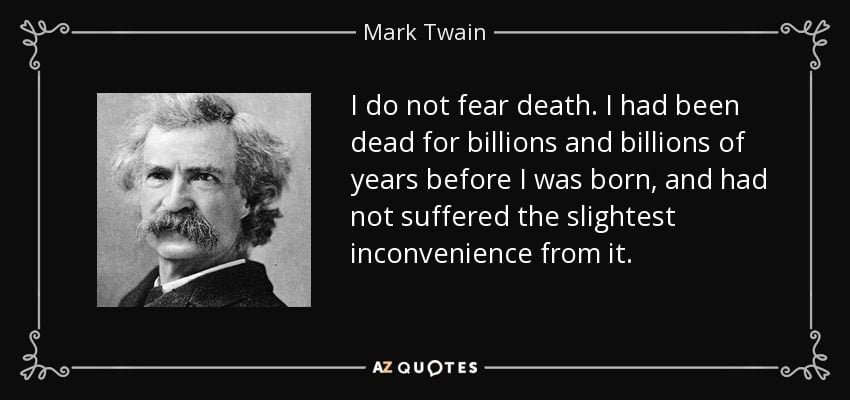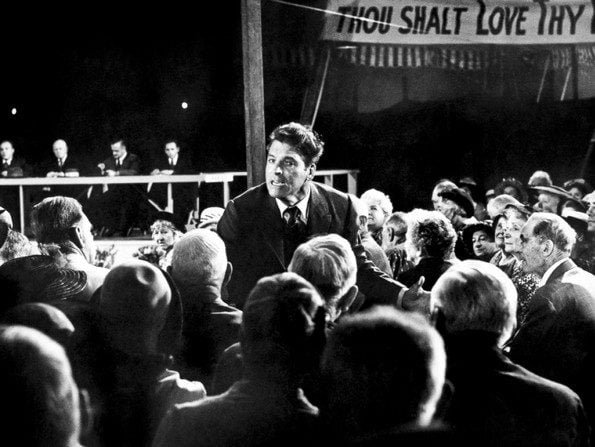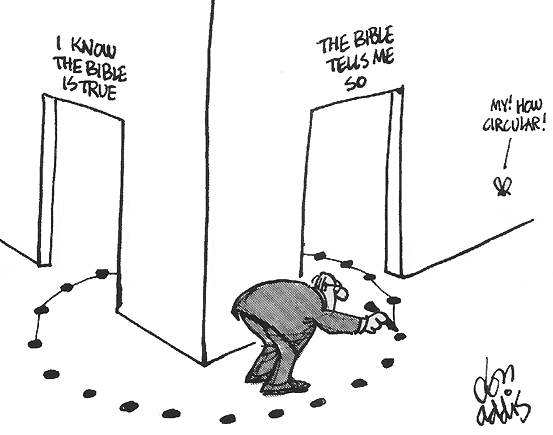
In the fall of my tenth grade year, I made a public profession of faith at Trinity Baptist Church in Findlay, Ohio. I was fifteen. I vividly remember sitting with my church friends several rows back on the left side of the auditorium as Evangelist Al Lacey preached the gospel. I had heard over a thousand sermons by that time, yet on this night the preacher’s words struck pay dirt in my wicked, sinful heart. When it came time for the invitation — a time at the end of the service when the congregation stands, sings an invitation hymn such as Just as I Am, and the preacher pleads with people to come forward to get saved, rededicate their lives to Christ, join the church, or any other decision God may be laying on their hearts — I wasted no time stepping out of my pew and coming to the front. I was met there by an altar worker and deacon named Ray Salisbury. Ray knelt with me at the altar, took me through the plan of salvation, and had me pray to ask Jesus to save me. When I got up from the altar, it was if a heavy burden had been lifted from life.
Two weeks later, I went forward again, this time to let the church know that God was calling me to preach. Outside of people getting saved, there was no greater shared experience than a young man saying God was calling him into the ministry. Youth pastor Bruce Turner quickly took me under his wing. (Please see Dear Bruce Turner.) Two weeks later, I preached my first sermon from 2 Corinthians 5:20:
Now then we are ambassadors for Christ, as though God did beseech you by us: we pray you in Christ’s stead, be ye reconciled to God.
By the time I left the ministry in 2005, at age of forty-eight, I had preached over four thousand sermons, and pastored Evangelical churches in Ohio, Texas, and Michigan.
One of the questions my Evangelical interlocutors often ask is this: Bruce, what is the REAL reason you left the ministry? To these people, the reasons I give for leaving the ministry and later leaving Christianity are suspect. Several days ago, I re-read a post of mine John Loftus posted ten years ago on the Debunking Christianity website. I had forgotten the accusations Evangelical commenters had thrown my way (any grammar and spelling errors in the original comments):
Cathy: So the wolf has finally taken off his sheep’s clothes. Took a while. (Cathy is a member of Community Baptist Church in Elmendorf, Texas, a church I co-pastored in 1994. Please see the series I am a Publican and a Heathen.)
Dimitrios: Are you still married? There is more to this story than what you are leading us to………I recognize this is your story, but I can’t help but sense there is more to this than simply “losing” your faith. Are you a homosexual?
Dimitrios: Please disregard my last post…and, I apologize…I see from earlier posts that your wife is still with you. I’ve experienced people “leaving” their faith, due to a lifestyle attraction that was not supported by the church. In any event, I still feel there is more, but perhaps it is best unsaid.
Rusty: what a crock of horse manure if I ever read any.
Guest: I have doubts as to whether your testimony is truthful. but one thing I do know… It is incomplete. of all the journey and hardship you testify of — I don’t recall you mentioning the lord Jesus. It would appear that you became a baptist … not a born again Christian — you burnt yourself out serving a man made establishment. it is not possible to burn yourself out serving God as firstly it is a matter of loving him — to do so you must fall in love with God — after this, all things have joy, good and bad situations, have joy just as it is a joy to endure any amount of hardship for a child you love with all your heart, so it is a joy to endure anything for God, when you love him.
YoBro1: To Bruce G. So…..what really IS your problem? I’m not gonna quote scriptures and tell everyone off. We be praying for you here in Az man. Your brutal truth about what has happend to you, has happend to many as well. Just like Job, he wanted to discredit God and make his wrong justified to make himself feel better. Your you, and you know when the time is right. But, remember He keeps knocking at everyones heart. Be blessed.
Steven Shull: It does sound as if you have an injury that never healed and you blame God or the church for it. Maybe I am wrong. But you kind of come across that way. The Bible says in Ephesians 6:10 that we wrestle not against Flesh & Blood but against principalities and spiritual forces of evil (demons). If you don’t believe your enemy exists or is at war with you. Then that line of thought just gives that enemy even more power to mess with you as he sees fit. As I have said earlier I have been through similar situations in the Church. But rather then trying to find fault with the people in the church or learning Hebrew and Greek so I can study a more perfected Bible translation. I made the extra effort to see who was pulling the levers behind the scenes. Like the wizard of OZ. You find someone hiding behind the curtain. Someone desperately hoping to be dismissed (he needs that to happen) so he can help people discredit God and His word by causing Christians to not see who really is at fault. Then people will fight among themselves and blame God for the outcome.
Straightforward: that’s what happens when man turn to the other side. or they have been there, just that they hid it for sometime.
Over the past thirteen years, countless Evangelical zealots have left similar comments on this blog or sent them to me in emails. Unable or willing to accept my story at face value, they look for the “real” reason I left the ministry and later deconverted. Most often, my critics think I had some sort of secret sin in my life? Did I have an affair? Was I child molester? Did I steal from one or more of the churches I pastored? Was I a deceiver, a false prophet, a wolf in sheep’s clothing? The list of sins I allegedly committed is endless. No evidence is given for these allegations. My critics just KNOW in their heart of hearts that there must be some secret reason for such radical changes in my life. What God called preacher would ever leave the ministry or abandon Christian altogether. No, no, no, there must be some reason for me leaving the ministry and leaving Christianity other than what I have said.
These kind of people used to irritate the hell out of me. I thought, “why can’t they just accept what I have to say? Why try to trash my character and reputation? Why make me out to be a liar? Over the years, I have learned that when some Evangelicals read my story, it causes them to doubt their own salvation, leading to cognitive dissonance. Instead of examining their own lives, they dig for ways to dismiss mine. They comb through my life with a lice comb, hoping to find nits that prove that I was never a True Christian®; that I was a tool of Satan; that I was a false prophet.
When Evangelical zealots take this approach with me, I no longer try to help them see the light. Instead, I tell them, believe what you will. My critics would love to see COVID-19 take me out, but until it or some other disease claims my life, I plan to continue telling my story. I am one man with a story to tell, and I still have a few more chapters to write.
Bruce Gerencser, 66, lives in rural Northwest Ohio with his wife of 45 years. He and his wife have six grown children and thirteen grandchildren. Bruce pastored Evangelical churches for twenty-five years in Ohio, Texas, and Michigan. Bruce left the ministry in 2005, and in 2008 he left Christianity. Bruce is now a humanist and an atheist.
Connect with me on social media:
Your comments are welcome and appreciated. All first-time comments are moderated. Please read the commenting rules before commenting.
You can email Bruce via the Contact Form.










